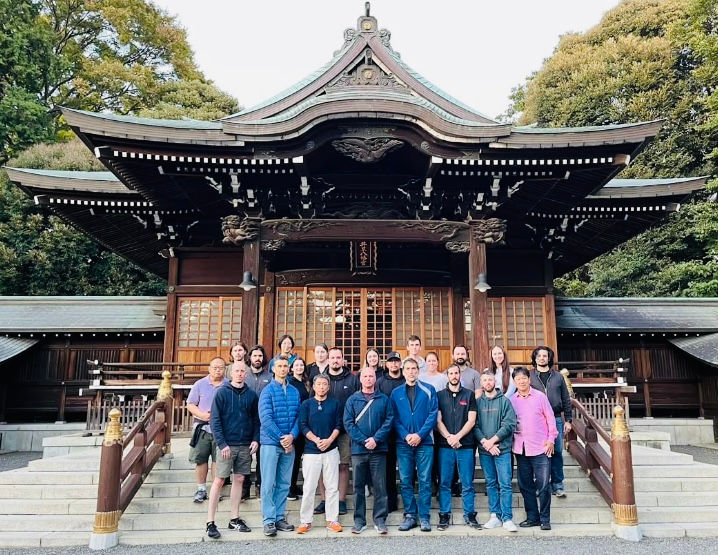

KOBUDŌ
Kobudō (古武道) can be translated as 古 (old) 武 (martial) 道 (way)
Budō denotes the totality of a “Warrior's Martial Way”: that of technical martial proficiency, discipline, morality, sincerity, commitment, and a constant search for knowledge and self-improvement. The Old Martial Way (Kobudō) in Shisenkan draws on over twelve martial traditions with an encompassing multi-discipline curriculum of unarmed and weapons fighting methods, with the additional transmission of worldview, strategy, and warrior philosophy. Shisenkan is a Hall where traditions are kept as close as possible to their original form, with all the fathomless knowledge that comes with it. As such, Shisenkan Kobudō develops technical, mental, and spiritual strength for the total protection of one’s safe and healthy being.


TECHNIQUES & KNOWLEDGE
Taijutsu: "Unarmed Fighting Skills"
Jūtaijutsu: A comprehensive utilization of the body to apply a multitude of fighting skills
Jūjutsu: Joint manipulations
Dakentaijutsu: Strikes and kicks
Koppōjutsu: Special power strikes and kicks
Ninpō & Ninjutsu: A unique array of techniques and world view.
Buki "Weapons"
Bōjutsu (staff & stick fighting skills): Rokushakubō (6 feet/180cm staff), Jō (4 feet/120cm staff), Hanbō ("half a staff" 3feet/90cm stick), Tanbō ("short stick" 1 foot/30cm stick)
Kenjutsu (sword fighting skills): Katana/Tachi (long sword), Kodachi (short sword), Tantō (knife)
Naginata-jutsu (halbard/glaive fighting skills): Naginata is a 30~55cm wide curved blade attached to a staff
Sōjutsu (spear fighting skills): Yari (spear) is a 15-55cm straight blade attached to a 120cm~300+cm staff. The Yari taught in Shisenkan has a 35cm blade attached to a 180cm staff
Shuriken-jutsu (blade projectiles throwing skills): five typs of Bō-shuriken (short pointy iron rods) and Senban-shuriken (curved pointy diamond-shaped iron-plate)
Kyūjutsu (bow&arrows shooting skills). Hankyū ("half a bow" 120cm-long bow)
Special weapons: Kusarifundō (iron chain), Te-no-uchi ("within the palm"), Kakushibuki ("hidden weapons"), others.
Tenmon Chimon (astronomy, weather, and ground). Understanding the day and night sky, weather patterns, topography, etc'.





PROGRESS RECOGNITION
(Ranking System)

There are two ranking tracks. The main ranking track includes a scale from 9th Kyū to 1st Kyū, marked by a green belt only or color rank-belts, and the black-belt scale from 1st Dan to 8th Dan. The Kyū level techniques and knowledge provides the building blocks for all martial experts, which then allow progression to the advance black-belt level techniques and knowledge.
The second is the weapons track. Each weapon's category follows a traditional certification system, starting with Kirigami "Initiation" level, and continues to Shoden "Beginning Level", Chūden "Midle Level", Okuden "High Level", and Goku'i "Mastership Level".
Progression (i.e., evaluation and testing) Progression is observed in training regularly, and teaching is adjusted to each deshi (student). When the student has reached the required skill level for a rank, a formal test is conducted by the instructor in front of the other deshi. Upon successful completion of the test, the deshi will receive an official certificate and an update to the deshi's record and membership card.
SPECIAL TITLES
Bushi 武師 Bushi ("Martial Expert") is the initial level of mastership. It is conferred on a deshi who is at the rank of 4th Dan after passing successfuly the Bushi test.
Shinan 師南 Shinan is a junior master. It is coferred on a deshi who is at the rank of 5th-6th Dan after passing successfuly the Shinan test.
Shihan 師範 Shihan is a master. It is coferred on a deshi who holds the rank of 7th-8th Dan after successfuly passing the Shihan test.










